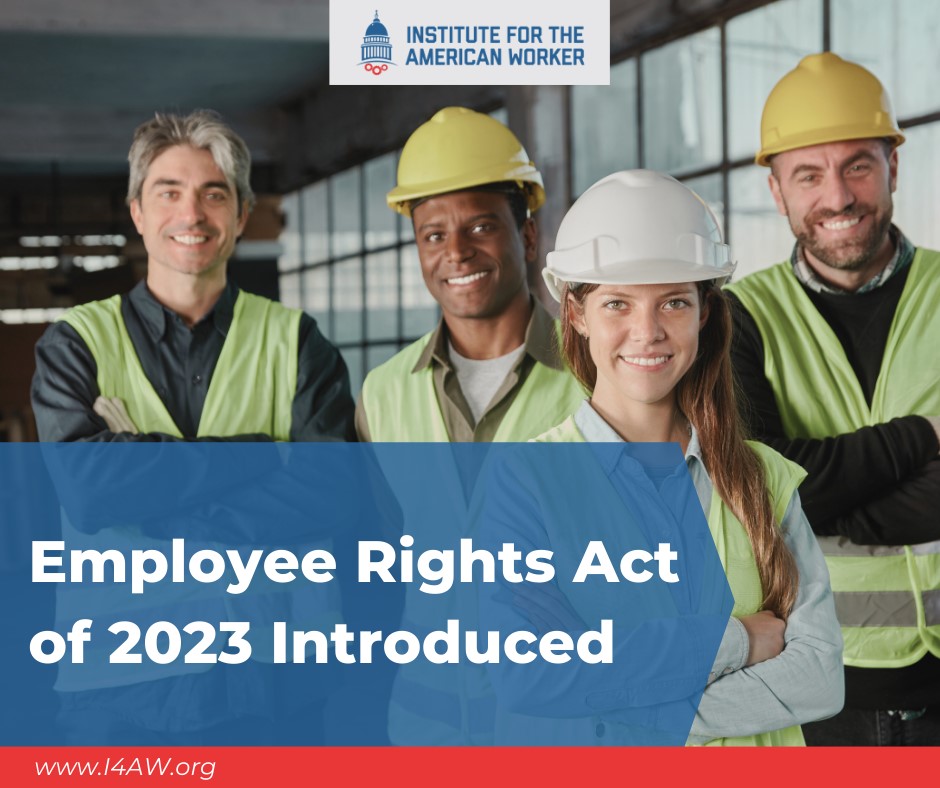Posts tagged Unionization
Editorial: Unionizing Uber and Lyft drivers may speed up their robotic replacement
June 27, 2025 // And as anyone who regularly takes an Uber well knows, the prices went up once the cabs were vanquished. A lot. Taxi prices, a source of complaint for generations of Chicagoans, now often look like a bargain in comparison to Uber or Lyft, especially when it rains or there’s a ballgame in the neighborhood. As Big Tech’s variable pricing ravages our wallets, regulated rates have never looked better to many of us. With ride-share prices rising, policymakers are now weighing how best to support drivers — but those efforts, including unionization, could unintentionally make things worse for both riders and drivers as driverless technology gains traction.

Rep. Allen, Vinnie Vernuccio: How to empower workers and improve unions
June 26, 2025 // The ERA will protect workers’ rights while refocusing unions on their core mission of representing employees. It will give workers and entrepreneurs the confidence to champion their future and shape our economy for decades. The ERA protects and promotes the foundational elements of the modern economy. It ensures that workers of all backgrounds can continue pursuing their American dream by guaranteeing their right to decide how and when they work as independent contractors. That fundamental right has long been under attack and in danger due to conflicting federal laws, regulations, and rulings. The ERA also ensures that Americans can continue to pursue entrepreneurship through franchising by permanently clarifying the shifting and incompatible “joint employer” standards that have threatened this long-standing small business model.
Mills First Two Vetos Nix Farmworker Unionization and Indigent Defense Bills
June 25, 2025 // “LD 588 is substantively identical to L.D. 525 in the 131st Legislature, a bill of the same name that I vetoed. Because the bill is unchanged, so too is my veto letter,” Mills wrote. “(It) would create a new legal framework governing labor-management relations in Maine’s agricultural sector. The bill would authorize agricultural workers to engage in certain concerted activity, and create a new regulatory structure for complaints, hearings and enforcement by the Maine Labor Relations Board. This is complex legislation with cross references to federal law, including the National Labor Relations Act.” Mills added that “against this background I cannot subject our farmers to a complicated new set of labor laws that will require a lawyer just to understand. Now is not the time to impose a new regulatory burden on our agricultural sector, and particularly not family-owned farms that are not well positioned to know and understand their obligations under a new such law.”
10 Roads Express strike nearing an end
June 23, 2025 // More than 160 drivers at Breakthru locations across Florida have gone on strike – a strike that has slowed liquor distribution in Florida for the past two weeks. The Teamsters union alleges the work stoppage comes after the company illegally fired workers for union activity and refused to bargain in good faith with the Teamsters.
Core Transit employees’ unionization effort stalls
June 21, 2025 // Core Transit management objected to the proposed community of interest because many facets of the customer service representatives and the fleet maintenance technicians, including compensation, supervisory structure, job duties and job location, differ from those of operators.
CBS News Digital Staffers Say Fight for Contract Improvements Continue a Year After WGA Unionization
June 20, 2025 // The unionized journalist, editors and social media producers call on management to meet “in good faith” ahead of their current last scheduled bargaining date of June 24
Bill enabling unionization of ride-hail drivers takes big step
June 17, 2025 // Under the bill, the state would require Uber, Lyft and other such companies on a quarterly basis to give to the Public Employment Relations Board a list of all California ride-hail drivers who have provided at least 20 rides in the preceding six months. The board would use that data to determine the median number of rides given by that pool of drivers. Under AB 1340 as it’s currently written, any driver who gave at least the median number of rides would be considered an active driver. An organization seeking to form a drivers union could then start the process by getting at least 10% of active drivers to authorize it to act as their representative.
Op-ed: Virginia Must Clarify Its Labor Laws
June 9, 2025 // The ideal outcome for Virginia would be to repeal the Democrats’ 2020 law and return Virginia to being one of the few states that outright prohibit collective bargaining in the public sector. North and South Carolina have for decades, and Utah joined them with a new law signed by Governor Spencer Cox (R.) this year. But with Democrats currently in control of the Virginia General Assembly, a repeal effort would go nowhere. In the meantime, the proposed regulations are needed to make sure local government unions are following the law. Virginia is a right-to-work state with many strong protections for employees in unionized workplaces. Public employees deserve those protections just as much as private employees do.
Commentary– Kenyon: DHMC nurses mourn failed attempt at unionization
June 9, 2025 // The group of 50 or so registered nurses who led the effort at DHMC had outside help from the Northeast Nurses Association, which assists health care workers in four states in forming unions. Nela Hadzic, the group’s regional organizing director, spent enough time with DHMC nurses to see what they were up against.

5.9% of Washington Workers Are Union Members, 6th Most in the U.S.
June 9, 2025 // Union membership in the United States has declined to its lowest point in decades. In 1979, unions represented 24.1% of the American workforce. By 2024, that share had fallen to just 9.9%, according to figures from the U.S. Bureau of Labor Statistics and UnionStats. In absolute terms, this represents a drop of roughly 6.7 million members—from a peak of 20.9 million in 1979 to around 14.2 million in 2024.
